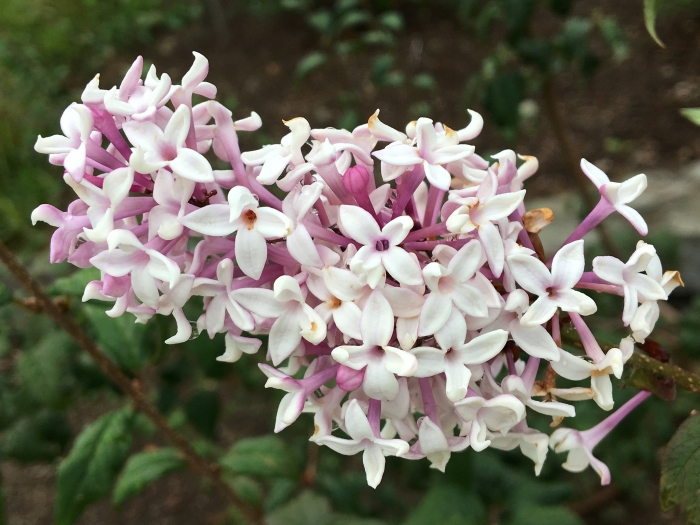Downy Lilac
(Syringa pubescens)
Downy Lilac (Syringa pubescens)
/
/

Plant Image Library
CC BY-SA 2.0
Image By:
Plant Image Library
Recorded By:
Copyright:
CC BY-SA 2.0
Copyright Notice:
Photo by: Plant Image Library | License Type: CC BY-SA 2.0 | License URL: https://creativecommons.org/licenses/by-sa/2.0/ | Uploader: Plant Image Library | Publisher: Flickr |
















Estimated Native Range
Summary
Syringa pubescens, commonly known as Downy Lilac, is a deciduous shrub native to woodland margins, scrub areas, and rocky hillsides in East Asia, including regions of China, Korea, and Mongolia. It typically grows to a height and width of 4-9 feet (1.2-2.7 meters), presenting a rounded form with a dense, twiggy structure. The leaves are small, ovate, and have a downy texture, which is the origin of its common name. Downy Lilac is celebrated for its profuse clusters of fragrant flowers that bloom in late spring, with colors ranging from blue and pink to purple and white, depending on the cultivar. The flowers are highly showy and attract pollinators such as butterflies and bees.
Downy Lilac is valued for its compact size, making it suitable for smaller gardens, and its fragrant flowers that add sensory appeal to the landscape. It is commonly used in border plantings, as a specimen shrub, or in mass plantings for a dramatic effect. This lilac prefers full sun but can tolerate light shade and requires well-drained soil with medium moisture. It is relatively low maintenance but benefits from occasional pruning to maintain shape and promote vigorous flowering. Popular cultivars include ’Miss Kim’ and ’Palibin’, which are known for their more compact growth and later blooming period. Potential problems include susceptibility to powdery mildew and lilac borer. It is also deer resistant, which is an added benefit in areas with high deer populations.CC BY-SA 4.0
Downy Lilac is valued for its compact size, making it suitable for smaller gardens, and its fragrant flowers that add sensory appeal to the landscape. It is commonly used in border plantings, as a specimen shrub, or in mass plantings for a dramatic effect. This lilac prefers full sun but can tolerate light shade and requires well-drained soil with medium moisture. It is relatively low maintenance but benefits from occasional pruning to maintain shape and promote vigorous flowering. Popular cultivars include ’Miss Kim’ and ’Palibin’, which are known for their more compact growth and later blooming period. Potential problems include susceptibility to powdery mildew and lilac borer. It is also deer resistant, which is an added benefit in areas with high deer populations.CC BY-SA 4.0
Plant Description
- Plant Type: Shrub
- Height: 4-9 feet
- Width: 4-9 feet
- Growth Rate: Slow
- Flower Color: Pink, Purple, White
- Flowering Season: Spring
- Leaf Retention: Deciduous
Growth Requirements
- Sun: Full Sun, Part Shade
- Water: Medium
- Drainage: Medium
Common Uses
Bank Stabilization, Bee Garden, Bird Garden, Border Plant, Butterfly Garden, Deer Resistant, Drought Tolerant, Erosion Control, Fragrant, Hedges, Hummingbird Garden, Rabbit Resistant, Salt Tolerant, Showy Flowers, Street Planting
Natural Habitat
Woodland margins, scrub areas, and rocky hillsides in East Asia
Other Names
Common Names: Hairy Lilac, Korean Lilac, Meyer Lilac, Småbladig Syren
Scientific Names: , Syringa pubescens, Syringa meyerae, Syringa meyerae f. alba, Syringa meyerae var. spontanea, Syringa villosa var. pubescens,
GBIF Accepted Name: Syringa pubescens Turcz.